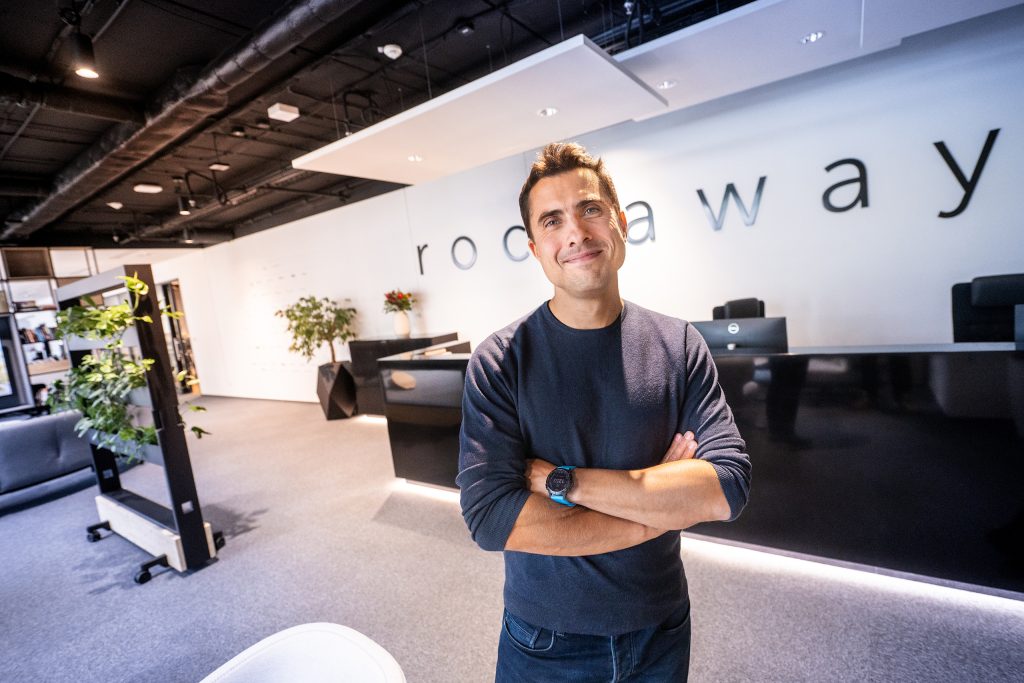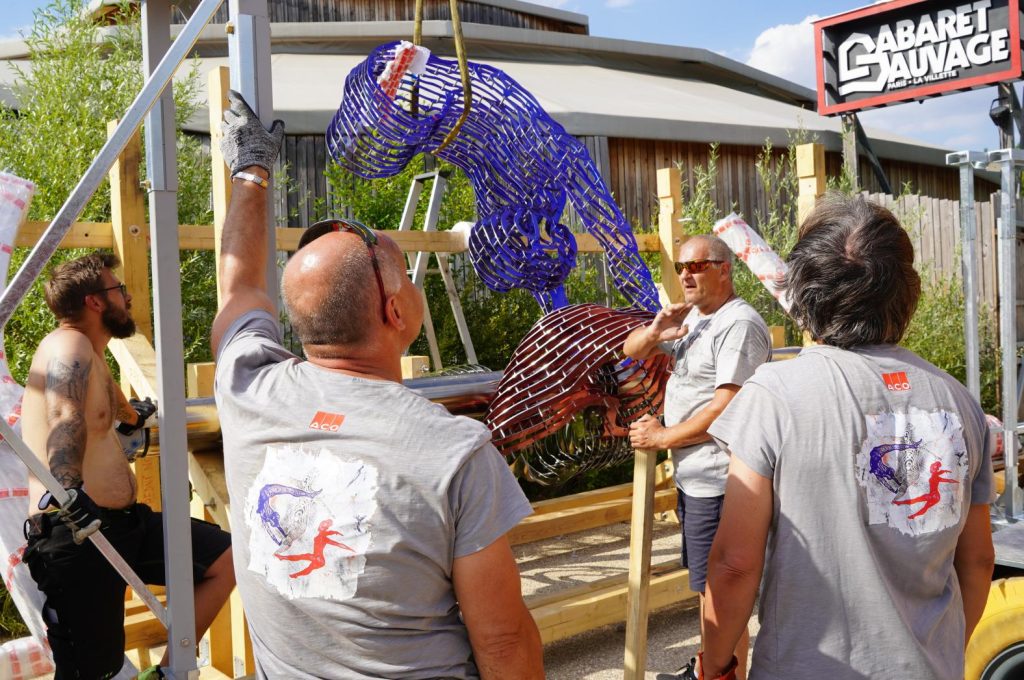All newsJakub Krůta and Jakub Ryba: Finance and Law in Rockaway work best in tandem

A lawyer well-versed in taxes and a director of finance with deep knowledge of law? At Rockaway, that’s standard practice – that’s because the “fin-legal” departments here work in close symbiosis – something that’s not completely common in all companies. According to lawyer Jakub Krůta and Rockaway Venture Fund CFO Jakub Ryba, it is the natural culmination of many years of operation. Have a peek at their work in the next issue of our Insider.
At Rockaway, the finance and legal departments are closely connected, we ourselves call the whole thing “fin-leg”. Why is this cooperation so unique?
JAKUB KRŮTA (GENERAL COUNSEL): We’re one big team operating in tandem. Lawyers are expected to also take into account matters related to taxes, accounting, and valuation. Nobody here works on a deal on their own without consulting their “counterpart” from the other domain. That’s what makes it unique – the results of our work are a seamless whole. In many other companies a lawyer will produce something from a purely legal perspective and the recipient of the work will have to make do with a disclaimer that nobody looked at the tax implications (and vice-versa in the case of tax specialists). That’s foreign to us. Our approach has great added value for investment partners – they don’t have to complete anything or hire an external consultant.
A great benefit is also how much you learn from others over time. You then know what you should alert your finance colleagues to, and vice versa. For example, people from legal understand basic valuation concepts from our Portfolio Valuations manager Jakub Ryba, and know what equity or enterprise value means. And with a bit of exaggeration I can say that over the years our CFO Jaromír Švihovský has basically become a lawyer and even thinks like one now.
JAKUB RYBA (CFO ROCKAWAY VENTURE FUND & CORPORATE FINANCE): It’s the natural culmination of how we work. Most of our deals have three pillars: the investment team takes care of the business pillar, with the other two being finance and legal. The deal needs financing – what are we actually buying, how much it will cost, how it will fit in our portfolio, payment mechanisms, and other financial metrics and indicators. And then all this needs to have a legal foundation – so everything is correct. If I imagine us being completely separate – a lawyer comes to see me, I review it, and give it back to him… That would be very ineffective. As it is, we sit next to each other, transaction lawyers have learned my terminology while I’ve absorbed something from them. Thanks to this we’re capable of solving anything really quickly, and even the other party is often surprised by our tempo.
So does a lawyer basically have to be a finance person and vice versa?
Jakub Krůta: Nobody certainly expects a lawyer to know what tax rate applies to a specific deliverable or similar details. We’re talking about key points. That when as a lawyer you’re working on something, you know who in the team to ask for help and what to ask. This goes both ways: when our Head of Controlling wants to execute intra-group equity distribution, she knows that corporate law stipulates certain conditions for such an operation, and asks me to get involved – and I’ll then help perform balance sheet tests. So: she doesn’t have to know where in the law it is – but she does know that it’s something that has to be dealt with.
Jakub Ryba: It would of course be great if one person here could do everything, but then what would I do (laughs)? Sometimes our fungibility is difficult, because we’re a relatively small team and everyone has their own agenda – and it’s sometimes difficult to manage the work so that it all dovetails. When one of us has too much on his plate, we have to prioritize. But the people in the team have sufficient awareness by now, so they know when to stop and call someone, me for example. And I, on the other hand, am capable of very quickly deciding that something needs to be looked at by a lawyer. And that’s the ideal state of affairs, I think.
What specific characteristic do you look for in a new team member?
Jakub Krůta: Specifically, I like it when people have the desire to work on new problems or look for solutions that have no precedent. By the way, that’s something that happens very often here – a project appears that even a consultant from the Big Four tells us he’s never seen before. But we have to come up with something, plus we have to fit a new construct like this into the current legal framework.
But some of our candidates would like to stay within the usual constraints and don’t want to look at what’s on the other side… What we also want is that they have at least an interest in gradually learning things other than just law – corporate finance, accounting, and taxes.
Jakub Ryba: Everyone is looking for something else, everyone has a different sore spot. The finance team is also split in a certain way: we’ve got people from consolidation who are concerned with one thing and people from reporting who are concerned with another. Then there’s me, off to the side a bit and needing something different. But I can speak for everyone when I say that a characteristic we all appreciate is independence and the willingness to finish things. People from large companies are sometimes these “doers” – they do their work quickly and well, but you have to tell them exactly what they should do and when. At Rockaway we don’t have this luxury. We appreciate someone being able to come up with a solution that may not necessarily be the best one, but at least there is one, and we can discuss it. The effect is there. This kind of style is better than if they keep coming to me and asking me what they should do and how they should do it.
What personal characteristics do both of you find most useful in your work at Rockaway?
Jakub Krůta: To a great extent the desire to tackle new problems. I enjoy that and can’t even imagine having to work according to templates. I like getting a blank piece of paper and having to come up with a solution from the ground up. A bit of my workaholic nature also helps occasionally. Our job isn’t really one that’s “nine to five”, we never go home and forget about everything entirely, we’re always thinking about new things, sometimes someone comes along and “upsets your apple cart”… But that doesn’t spoil my desire to keep going.
Jakub Ryba: I’d like to know what everyone in the team would say if you asked them about my characteristic (laughs). Probably my directness. I don’t beat around the bush very much and cut to the chase – and lot’s of people don’t like that. Perhaps I don’t always pick the optimum approach, but on the other hand, I do get where I need to.
And what, on the other hand, have you learned at Rockaway over the years?
Jakub Krůta: To not underestimate others and not overestimate oneself. Seriously, I’d like to know what the average IQ at Rockaway is. Because there are so many extremely smart people working here, that you’ve got to operate with a measure of humility. And it’s important to realize that if something isn’t your most immediate area of expertise, there’s always someone to be found who knows it better. That’s happened to me several times. You’ve got some sort of concept, someone contradicts it, you feel like grumbling – but at the end of the day you admit they were right all the same. So, to listen to people and deal with them with humility.
On the other hand – I’ve learned to not underestimate my intuition when dealing with someone else. I think that I’ve got a relatively good sense of how people on the other side of the table are thinking and how they’ll behave. In this respect, for a long time I followed the aforementioned principle that those around me definitely know something I don’t, but after several “I told you so” moments I started being more assertive. So that’s something else I found out about myself at Rockaway.
Jakub Ryba: I’ve learned a lot here. Maybe getting back to that directness I mentioned – it’s not always the best path to take. Sometimes it’s better to take the long way around, a very long way. I have to say, that’s something Jaromír is good at (Note: Rockaway CFO Jaromír Švihovský). He’s got a lot of empathy and I like how he considers what the other person would also have to say about certain things. As I said, he takes the long way around, these little footpaths – and in the end he also gets to where he wants to go. If nothing else, this – how to formulate certain requests, how to be more aware of points of the other party’s point of view, is something I’d like to take away from Rockaway one day.
All these characteristics and skills are extremely valuable when working on a fund, for example. Could you describe to a layman how such an “ecosystem” comes about?
Jakub Ryba: It’s extremely detailed work that costs a lot of nerves and money: you create some sort of vehicle that sooner or later people fill with money. And mostly also people like us, from the markets, and you have to look at it like that: they’re no longer just some virtual ones and zeros belonging to extremely rich people or corporations. If you don’t do it right the first time, you’re laying the foundations for a problem. It costs a lot of effort to think X steps ahead and come up with individual scenarios, and then of course you need a lot of patience when dealing with everyone involved. It depends, of course, on where the fund is being launched, what the main jurisdictions are, national banks, we also address corporate activities such as audit, taxes, and so on… It’s an exercise in endurance and a terribly complicated. Once you start doing it, you don’t have time for anything else, because it comes back at you from all sides.
And how do we then manage such a fund?
Jakub Ryba: The ultimate objective of most funds is to generate a positive return for the people investing in them. So: you take money entrusted to you, and invest it with the appropriate diligence into assets that make sense. The more regulated a fund is, the more institutions there are to which you have to prove that what you’re doing is correct. The money is invested, assets are held for some time, and when the time is right they’re sold and at the end of it all people should get money, ideally more than they put in at the beginning. For this, as the one managing the fund, you’re entitled to a management fee from which the wages of the people working on it get paid, and in most cases also a performance fee, which is actually part of the entire profit of the fund that you get at the end even though you didn’t invest any of your own money. It’s a kind of managerial bonus for a job well done.
___
![]()
Did you like this interview?
Get the Rockaway Insider in your inbox every three weeks.
By clicking on “Subscribe” you agree to subscribe to the Rockaway Insider newsletter using the specified e-mail address. You can cancel your subscription at any time directly in the newsletter.
___




